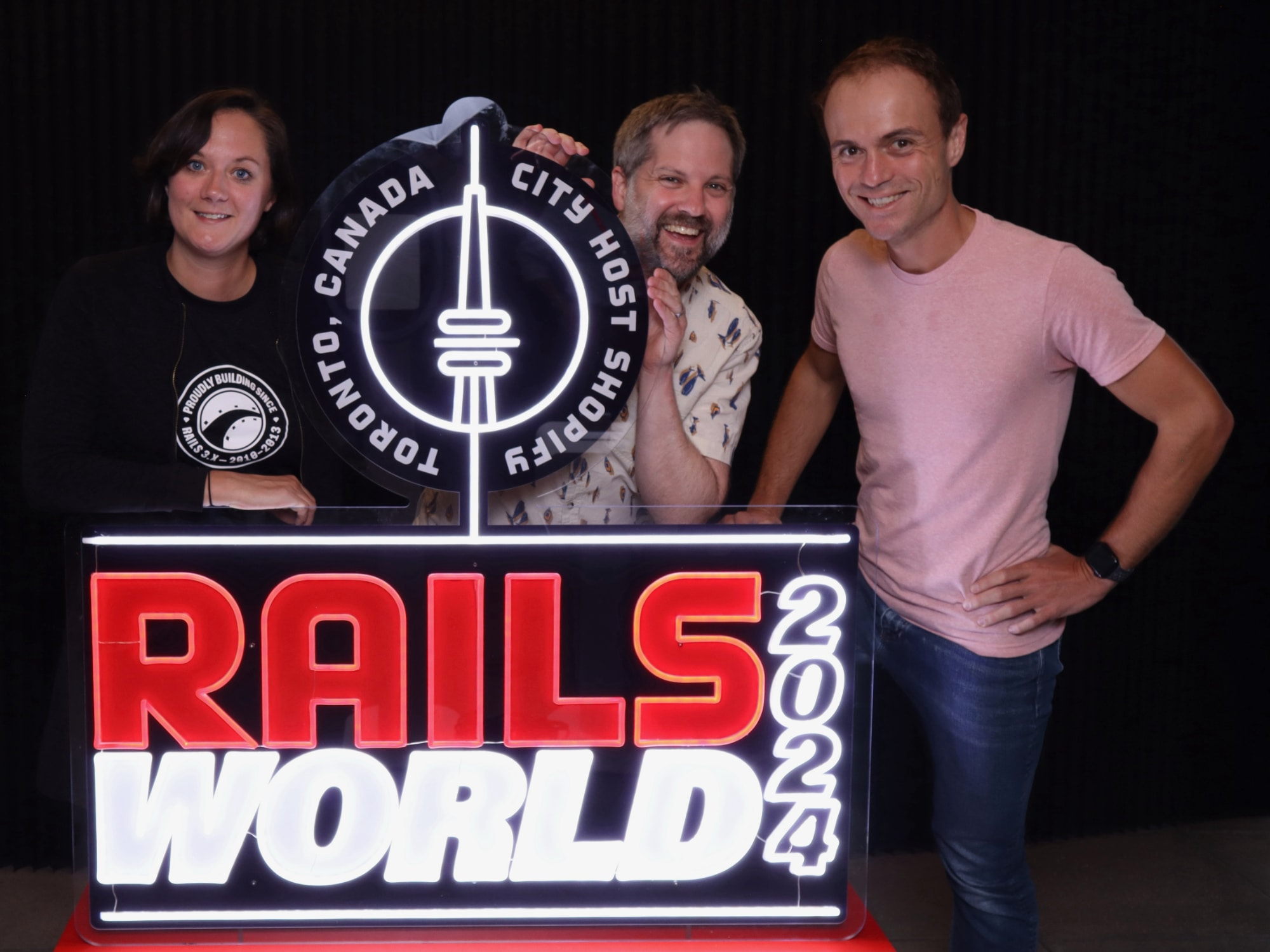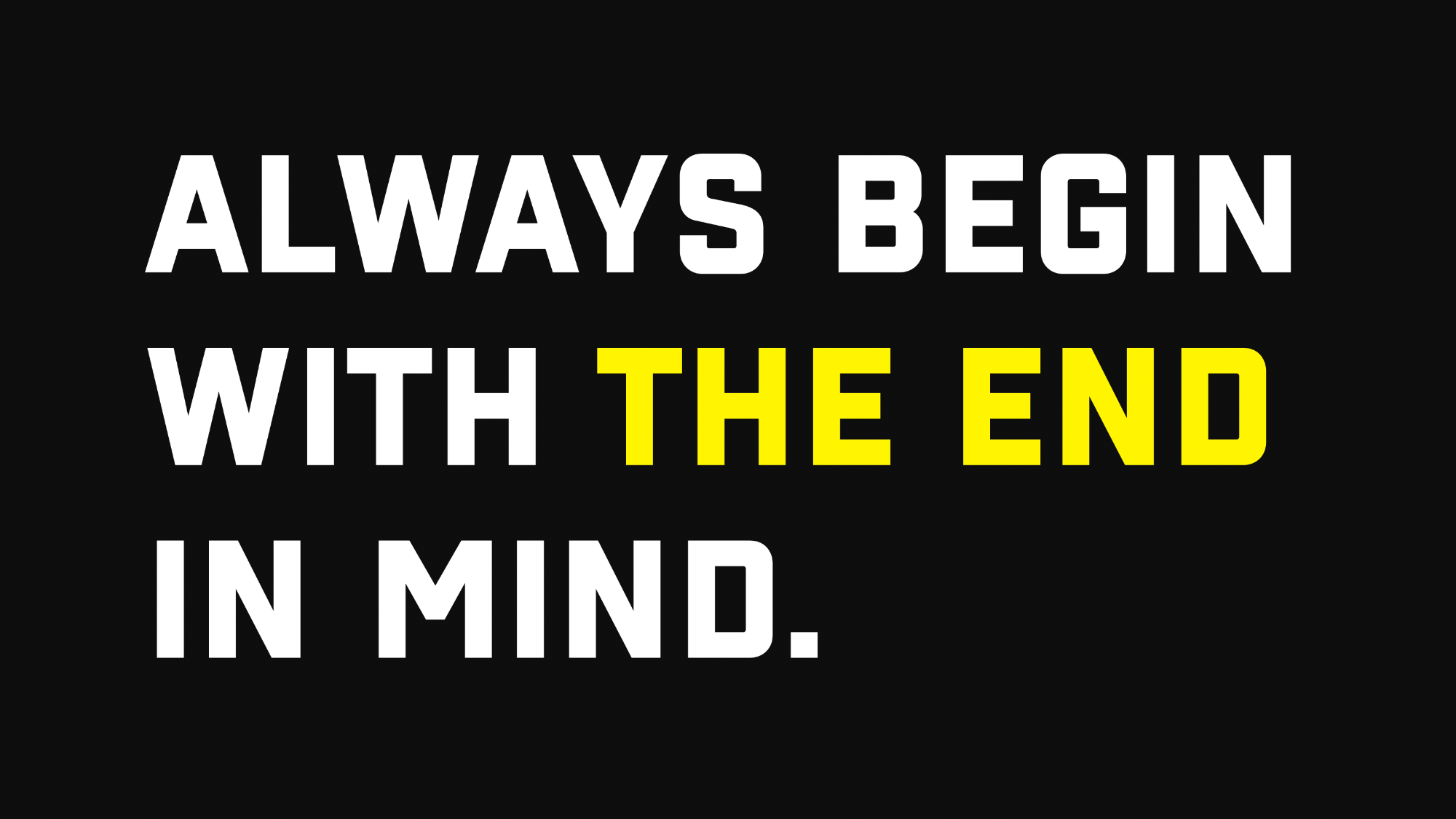You're looking at my e-mail newsletter, Searls of Wisdom, recreated for you here in website form. For the full experience, subscribe and get it delivered to your inbox each month!
Searls of Wisdom for September 2024
Hey everyone, have a good September?
Apologies, as most of my top-of-mind thoughts are hurricane-adjacent as I write this:
- That we decided to escape the storm by driving from Orlando to Savannah on Wednesday morning
- That I spent Wednesday night tossing and turning in bed after Milton made landfall, wondering whether I'd be more upset if there was significant damage to the house (and with it, the hassle of months of insurance claims and repairs) or if there was zero impact at all (rendering my 10 hours in the car an unnecessary hedge)
- That, in college, I rented a house on Milton Street we all called "The Milton", and how disappointed I am that none of Orlando's local news affiliates thought to call me to discuss this fascinating human interest story
- That our house is absolutely fine. Didn't even lose power. And my predominant emotional reaction is, predictably, to feel like the drive was a waste of time
Anyway, that's October stuff. And I'm not here to talk about October stuff, because Searls of Wisdom is a publication that happens in arrears. It takes a full month for these insights to coalesce and maturate in the nacre of my self-indulged mind.
So, let's talk about September stuff.
The one thing I'll remember about September 2024 is that it was the month I gave my final conference presentation. After 15 years of speaking at user groups and software conferences, I've decided to hang up the presenter remote. End of an era.
Here's a pic of me and my friends Aaron and Eileen at the RailsConf: World Edition afterparty:

It's been strange developing so many impactful friendships over dozens of seasonal pseudo-vacations sprinkled sporadically throughout my adult life. I've rarely ever visited these friends where they live, or met their families, or seen how they operate outside the predictable plot beats of a conference event. Each relationship a vignette of awkward run-ins at baggage claim and hotel lobbies. Strained catch-ups at noisy speaker dinners and sponsor parties. Warm greetings crossing paths in convention center hallways. Hushed critiques shared from the back of other people's sessions.
I can happily live without attending another conference. But will that mean living without most of these friendships, too?
Yeah, probably.
Below, I'm going to discuss my decision to announce my retirement from public speaking, how people reacted to it, and what the resulting dissonance can tell us about weighing loss aversion against opportunity cost.
The decision
People often ask me for a behind-the-scenes description of how I make talks. This probably isn't what they had in mind, but here's how I will personally always look back on the creation of my final talk, "The Empowered Programmer".
In January, Becky and I broke ground on a new Rails app that would play host to both Beckygram and the Better With Becky member portal. Since it was the most ambitious "real" SaaS product I'd ever made on my own, I knew the experience would be lousy with innovations and tribulations of the sort I enjoy recasting as potential lessons for others. In passing, I thought, "this would be a great case study to give a talk about." I had 9 whole months until the preeminent Rails conference. Rather than be stressed out of my gourd trying to weave together a thoughtful narrative under a tight deadline, I could take my time for once.
Pressure level: 1%
Unfortunately, the CFP ("call for proposals") for Rails World sessions came and went before I'd even noticed, closing waaaay back in March. My heart sank. I had assumed I would have more time to, you know, build this thing before pitching a presentation about how great a job I did in past-tense building it. I was granted an extension, poured two fingers of scotch, and in an hour wrote an uncharacteristically optimistic abstract hyping my future self's ability to singlehandedly build an ambitious app that would have normally taken an entire team to pull off.
Pressure level: 10%
Then our bathroom remodel started going off the rails, consuming nearly all the time (and spare brain cycles) I had set aside for building Becky's app. There goes April.
Pressure level: 15%
Then I went on a 5-week trip to Japan and mostly just faffed about. I got back and it was suddenly June. That one's entirely on me, I'll admit.
Bathroom turned out great, though. Pristine view of the Magic Kingdom fireworks every night from a fancy bath tub, elevated on a custom-designed quartz platform? Can't beat it.
Pressure level: 33.1%
Starting Monday, June 10th, I buckled down. I counted the weeks on the calendar. I had 15 weeks left to build the remaining 80% of the application, assist Becky in developing its initial marketing collateral, and prepare a new conference talk to be delivered on September 26th. I did some back-of-the-napkin math and concluded that if I worked 50 hours a week and avoided social commitments, I'd barely make it.
Well, shit.
Pressure level: 55%
In mid-July, after doing a morning discovery session with Becky about the degree of customization members would need when setting up a workout, I came to the realization that the overall scope of the app was roughly 20% larger than I'd anticipated.
I started seriously considering backing out of the conference, afraid I'd be forced to pause development of an unfinished, unlaunched product to prepare a talk about how easy it was to finish and launch said product. I'm one of the best bullshitters I know, but even I'm not that good.
The solution to these problems, however, was staring me right in the face: simply eliminate weekends. Searls LLC officially adopted a revolutionary 7-day workweek until the project was completed.
Pressure level: 70%
At some point in August, I got into a real groove there for a bit. Up just after 6am each morning, knocking out well-crafted, fully-tested features in half-day increments. Coding straight until dinner, with a rushed workout somewhere in the middle. I spent most of the day looking like nerdy Robocop as I began walking around the house in my Vision Pro to get more coffee in order to save myself the two minutes it takes to reliably restart a Mac Virtual Display session.
It was hard work, but also, like, holy shit… I was actually finally getting good at this whole "making software" thing. Took me long enough.
Pressure level: 69%
Nice. By the end of August—4 weeks and change until show-time—I'd finally gone end-to-end with the app. Within a few days, Becky was comfortably programming strength-training workouts on the admin site, play-testing them in the member's app, and giving me feedback.
The only problem? A lot of that feedback challenged fundamental assumptions I'd made in the app's data architecture. Late feedback is always a risk, and perhaps I could have done a better job of extracting it sooner, but the reality was I had to start eating into time I'd reserved for the presentation if we were going to launch the app in time for the conference.
4 weeks of talk prep shrank to 3 weeks. And then 2 weeks. Out of nowhere, I had ten days until my performance and hadn't even opened Keynote. I'd never cut it this close before.
Pressure level: 95%
I spent so many hours in Keynote the next seven days (one day for design and intro, then one day for each of six sections) that my eyesight became blurry. I wasn't sleeping. I lost four pounds in just over a week.
I wasn't panicked, though. I've seen this movie before. I had hoped to avoid rushing to finish hundreds of slides this time, but this is exactly how it always goes. I was doing the work. I was making progress at the right pace. I was confident I would find a way to land the plane.
Pressure level: 90%
The night of the 7th day, I had my first draft of slides in the can. I balanced an end table on top of my dresser and propped my computer on top. I did an initial unscripted run-through of the slides. I had a 30 minute time slot, and I knew my first rehearsal would come in over that.
44 minutes, 59 seconds.
45 minutes is a lot longer than 30 minutes, but I wasn't worried. It's not that I have ice in my veins, it's just that I've just done this to myself a lot over the years. Countless times, I've found plenty of time savings by cutting bloat, tightening my delivery, practicing transitions, speeding up animations, and (naturally) talking faster.
So I spent the entirety of Day 8 at the computer cutting, cutting, and cutting some more. The narrative that emerged was clearer, more compelling, and (surprising to me and my cold dead heart) felt deeply meaningful. I got ready for my second rehearsal after propping my computer on top of the Jenga tower of bedroom furniture I'd assembled in order to keep my screen at eye height. As I spoke through each slide, I nailed the phrasing, hit every single one of the 600+ builds at exactly the right moment to sync the visuals with my speech, and felt like I'd really nailed this thing as I stopped the recording.
45 minutes, 7 seconds.
What the fucking fuck. It got longer!? How the… wait. What? Really? Fuck fuck fuck fuck.
My breathing got shallow as I scrubbed the video's timeline and confirmed that, yes, my new abbreviated version of the talk was absolutely perfect in every way except for the fact that it was 50% too long.
Welp. Good thing I have an entire day-and-a-half before my flight to Toronto.
Pressure level: I don't even want to be around anymore.
The next morning, I put on my game face. I cut nearly half the slides. Entire sections. Moved a ton of content around. Redesigned all the structural slides used to track progress through each section as the subsection counts shrank from six to four to three. I trimmed each demo video and sped up what was left by 15-40%, wringing them dry of every superfluous millisecond.
A slide deck that had started as mostly video demos and code examples suddenly featured scarcely any of either. What was left wasn't even my best stuff—I had to cut my two favorite sections for the sake of preserving any thematic cohesion.
I gave myself exactly 5 minutes to mourn the loss of some of the best work I'd done in years, before taking a deep breath and hitting record on my third run-through.
During the intro, I came upon this slide:

Originally, this slide was intended to serve as a launching-off point for some product management advice I'd given Becky at the outset of the project. But during this run-through, those aren't the words that came out. Instead, I paused for a moment, and my mouth authored this instead:
At the outset, I told Becky she could have as much of my time as needed to build this app, but I wouldn't let maintaining it become my Forever Job.
Speaking of the end, I have an announcement. This presentation will be my final conference talk. My life has been transformed by the opportunity to speak in front of people like you, but I've decided it's time to make room in my life for new pursuits. So… wish me luck?
I found myself forced to reckon with my own ad lib. See, one of the reasons I talk so much is that my mouth is always, stubbornly, several steps ahead of my brain. And because I'm lazy, I can often get where I'm going faster by subjecting others to my verbal processing than by attempting to quiet my mind enough to actually think.
Prior to this moment, I had idly speculated among friends that this would probably be my last talk. I'd half-jokingly begged Becky and my brother Jeremy for accountability (e.g. "Please kill me if I ever suggest doing this again"). But I'd never imagined announcing it out loud in public.
No time to give it another thought now. I clicked my remote, didn't miss a beat, and finished the run-through. It wasn't the opus that I'd executed the night prior, but it was good enough. The basic theme was intact, at least, which was the goal.
29 minutes, 59 seconds.
That was more like it. A wave of relief shivered through me. My shoulders loosened. My mood turned on a dime. My faith in myself restored. And, wait what the fuck did I say in the intro?
I took a few minutes to think about it, and the more I chewed on it, the more I liked the idea of properly and publicly retiring from speaking in this way. For a number of reasons:
- First, the name of the game in speaking is to figure out how to keep people's attention. This was hard to do in 2009, when it was customary for everyone to have their laptops open during talks, but has only gotten more difficult in the years since. It's why I make so many slides and pack them with so many animations. I want people to feel punished every time they check their phone. That's why I've always aimed for a "blink and you'll miss it" rhythm in the cadence of my delivery. And by opening the talk with an announcement that this would be my last one, I could surely get a few folks to sit up straighter than they would have otherwise
- A downside of being such a good bullshitter is that I can rationalize myself into thinking and doing just about anything. I could promise myself I'd never give into my vanity and agree to do this again, but my future self would have no trouble weaseling out of any such commitment. But declaring, "this is my last talk," in public? On video? That'd be harder to go back on
- For years, I'd given a bit of unsolicited advice to other speakers who would travel to conferences out of their own pocket, burn vacation days to do so, and piss off their bosses for missing work: stop doing that. Either find an employer whose business model values your speaking habit, start a business that would, or quit. Yet, here I was, years later, stressed out of my mind, and realizing I'd failed to follow my own advice. Speaking was a tremendous catalyst for my career and for Test Double's initial growth, but I no longer had anything to gain from doing this to myself
- Finally, and this one's a bit sentimental, it dawned on me that none of my own heroes—none of my friends, even—had ever told us they wouldn't be back. They all just stopped showing up at some point. By proactively announcing my retirement, maybe I'd manage to give others some kind of closure that I was only just now realizing I had long felt deprived of˙
So I kept the line in.
The reaction
I have chronic underdog brain. I got picked on a lot as a kid. I was obese throughout adolescence. I can trace all of my public-facing work back to that. The reason I produce so much content, why I hustle so hard, and why it's never been enough is that I feel an impulse to prove my worth and increase the odds that I'll be accepted. And a countervailing fear that if I don't keep feeding the meter, I'll be forgotten and left behind. I've been harnessing those darker energies towards more productive ends my entire adult life, but can't deny it leaves me with significant blind spots.
One such blind spot was that I did not anticipate anyone giving a shit about my announcement. I miscalculated.
In the day-and-a-half that remained of the conference after I got off stage, people stopped me everywhere I went, sharing a variety of reactions, in ascending order of pleasantness:
- "You'll be back. No way will this be your last talk"
- "I'm sorry I missed it! If you'd told us it was your last one, I'd have gone!"
- "I've been a fan of your work since I saw you at _______, and I just want to thank you for _________"
- "Your work had a profound impact on {me, my team, my friend} because ________, and you'll be missed"
- Amazingly, I heard three(!) variations of, "your work inspired me to start my business", one of which had even been acquired in a highly-visible deal you've probably heard of
All of these chats were lovely in their own way. Maybe I had one with you, and you're recounting it as you read this. I took as many selfies as I could. I reminded everyone to look me up the next time they visited Disney World.
But the conversations that are still lingering in my brain were with people who came up afterward who had nothing at all to say about me. It was as if the mere fact that I had the temerity to call my own shot by announcing a clear and final decision to step aside had disturbed something deep within them. Some folks had emotional processing to do, and I did my best to support. Some took a moment to grieve the loss of others who'd come before, and I commiserated with them. But more than a couple people reacted with a twinge of anger and indignation in their voice.
There was an air of how dare you to those final reactions. I'd summarize one person's frustrations that, as someone they look up to, as someone who's "made it", I would choose to throw it all away was to devalue a milestone they had imagined as a waypoint along their own intended trajectory—made more bitter still by an apparent simultaneous resignation that they were now too old to achieve it for themselves. I witnessed a similar strain from someone upset that I would abruptly stop doing something that had appeared to be going so well—by demonstrating my own agency in this way, he felt I was indicting him for having "coasted" through his own career, or having failed to affirmatively decide what to do with his own life.
You know, typical cocktail party stuff.
For whatever reason, I've always been inclined towards provocative language. And as soon as I realized that "provoke" is the root of the word, I learned it's best to just let people have their reactions. If I said some shit and it made you angry at me because of something inside yourself, that's all yours. I'm not going to try to talk you out of it.
Loss aversion versus opportunity cost
I remember in grade school being taught the expression, "a bird in the hand is worth two in the bush." The teacher said the point was to value what you had, and not risk losing it for the sake of greedily doubling your fortunes. My initial reaction was to be suspicious of what I would now call loss aversion: the powerful psychological fallacy of allowing the risk of losing something to outweigh an equally likely opportunity to gain something.
But, as a fat kid who tried to fit in by being a class clown, I think what I said in the moment was more like, "what kind of weirdo wants birds in their hands?"
Point being, from an early age, I could tell my default wiring was a bit unusual. Most other people prone to anxious stress, fits of rumination and worry, and fear-based decision-making are also highly susceptible to loss aversion. Play it safe. Stick to the rivers and the lakes that you're used to. I'm as much of a worrywart as anybody, but that ain't me.
Instead, I'm more concerned with the things I'll miss out on by sticking with the status quo, doing what is expected of me, and saying yes to opportunities that appear to others as "all upside". I frequently annoy people by expressing disinterest in activities they suggest, especially when I lack conflicting plans.
If you send a calendar event for a call, most people's default reaction would be to accept the invite so long as they don't have a preexisting conflict. My default reaction is to weigh the benefit of talking to you against the opportunity of doing something insanely great with that block of time instead. Then I think about how distracted I'll feel the morning of—how diminished my aspirations for the day will be due to the knowledge that I have this call hanging over my head. Then I think about the emotional and attention residue that I'll feel after I click "End Meeting" on Zoom or whatever, and how it'll take me an hour to recenter myself and regain my focus. If I hit accept on that invite, it will only be because I've rated as acceptable the risk that something more important than talking to you will come up between now and then.
None of this is because I don't value you. You're great. It's because I also value what I can't see. I have a vivid imagination that fills in the negative space in my calendar with every potential opportunity. And to commit my time to you is to deny all those other branching paths from coming into existence.
This is exactly why I went from passively never wanting kids to affirmatively unwanting them as soon as I was forced to think about it for more than five minutes. It wasn't because I failed to imagine all the familiar plot beats of parenting or couldn't see myself enjoying them as much as any other person. It was because I couldn't ignore the innumerable other branches of the tree of potential opportunities. I could imagine so many richer, more fascinating lives for myself that would become functionally impossible if I were to saddle myself with that kind of financial and time commitment. And because I could imagine so vividly the lives I would rather live, I knew myself well enough to know that I'd resent myself (and my partner, and any such children) for depriving me of those paths not taken.
So it is with conference speaking.
Initially, I said yes to every single user group, conference, and corporate speaking gig I could. I set aside my natural tendency as a homebody and forced myself out of my comfort zone, because I calculated that saying yes would lead to a better outcome overall. Eventually, I reached an inflection point where it became clear that the things I was missing out on by spending all this time traveling and speaking had begun to outweigh the marginal benefit of doing one more talk or showing up at one more conference. So I got choosier and more strategic about it for the next few years. And now I've stopped.
It often goes poorly for me when I try to break this down for people. When I express that I can be fully bought into something and then change course on a dime when the calculus shifts, with nary a scintilla of doubt and without any emotional attachment. It can seem heartless and robotic. But maintaining this broad perspective—of keeping one's eyes on the road ahead while the mind ponders every unseen route—can foster a deep empathy and understanding for how others end up where they do. That I took each potential twist and turn under consideration is why my present-day self can trust my past self's decisions. It's why I can look back and have essentially zero regrets about my life.
You can do this too
Sometimes in these newsletters, I write about myself and my own quirks and hope that readers will find something to latch onto and maybe even figure out how to apply it to their own lives. This time, maybe I've leaned too hard into my own idiosyncrasies for that. So I should mention explicitly that I believe this act of weighing the immediate against the potential can be learned, because I've taught it to people. I've seen them practice it, improve at it, and live better lives for it.
This fucking thing is already over 4000 words somehow and you're tired of reading it, so I'll keep this brief. If you want to take greater control over your life, pose this question to yourself the next time you're asked to do something: "by saying yes to this, what are some of the things I'd implicitly be saying no to?"
Challenge yourself with this in every context—a boss's demand, a colleague's meeting invite, a partner's request, a friend's invitation, a self-directed activity you might otherwise engage in out of habit. Ask yourself this question a dozen times a day or more. Experiment with saying no, with being more unpredictable, and with opting to do nothing at all. Before long, whenever you say yes to something, you'll viscerally feel the dozens of things you're incidentally saying no to. Eventually, that feedback loop will begin to nudge the trajectory of your life in a direction of your own choosing.
Okay, that's it. Time to be done.


